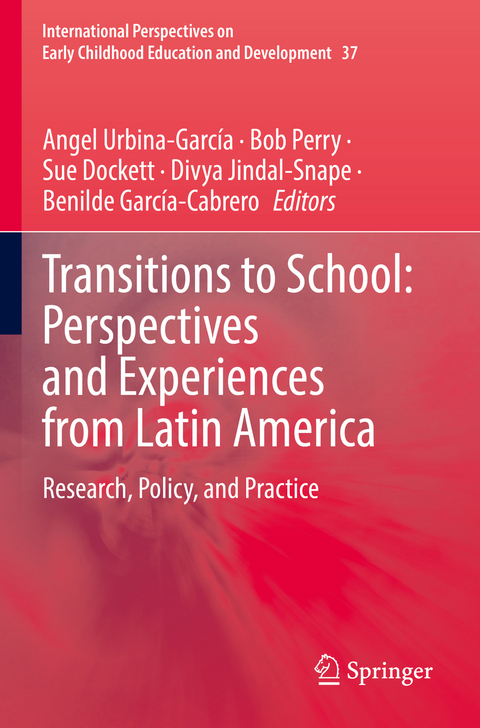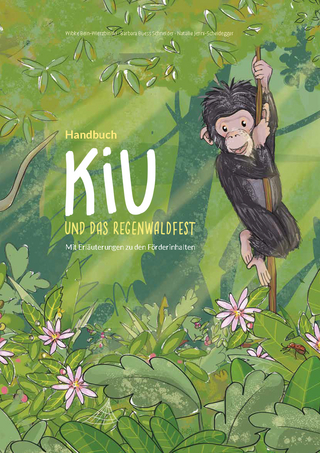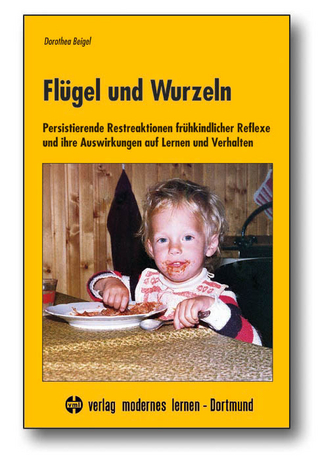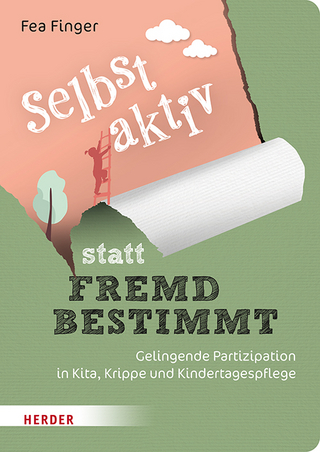
Transitions to School: Perspectives and Experiences from Latin America
Springer International Publishing (Verlag)
978-3-030-98937-8 (ISBN)
This book showcases the quality work that Latin American researchers have done on transition to school in Latin American countries by offering the English-speaking world, first-hand access to some Latin American transitions research, practices, and policies. This book shows the work carried out in countries such as Brazil, Chile, Cuba, and Mexico with regards to the way in which the transition to primary school is experienced from different stakeholders' perspectives, and how Latin American educational policies and cultural practices shape such an important process for stakeholders. This book was importantly framed by the COVID-19 pandemic which placed the world in a global health emergency, and it is our hope that this book will trigger future international collaborations between researchers, policy makers, and practitioners interested in transitions which could help produce a wealth of empirical evidence to inform educational policies and transitions practices across the world. Building networks where diverse experiences are valued and respected, as well as analysed, can help provide a platform that supports educators and researchers as they continue their work and branch out in new and challenging directions.
lt;p>Angel Urbina-García is an international educational psychologist and an expert in child development with more than 15 years of experience in academia having worked in Asia, Europe, and America in the feld of psychology and education working with students from more than 50 countries. He has held leadership positions in world-class universities and is an international researcher with signifcant experience in conducting research across continents using a mixed methodology and following a psycho-educational approach. He has led important international research projects with research grants from the prestigious British Academy, Leverhulme Trust, British Council, and the UK's Global Challenges Research Fund. He pioneered the research on preschool to school transition in Latin American contexts, and he has now created an important international network of researchers from South East Asia (e.g., Vietnam, Cambodia, Laos, Thailand, Singapore, Hong Kong, Australia, and New Zealand), North America (e.g., Mexico and United States), and Latin America (e.g., Chile, Honduras, Brazil, Cuba, Argentina, Ecuador, and Colombia) to conduct cross-cultural cutting-edge research. His research fndings have been disseminated widely at international world-class conferences and have been published in international peer-reviewed journals. He sits on the editorial board of the International Journal of Educational and Life Transitions and is a reviewer for several international world-leading peer-reviewed journals. He also works closely with the Regional Bureau for Education in Latin America and the Caribbean: OREALC/UNESCO Santiago de Chile.
Emeritus Professor Bob Perry is an experienced researcher with over 45 years of work in mathematics education and educational transitions, with particular emphasis in both on early childhood, education of Indigenous children, social justice and community capacity building. He is Emeritus Professor at Charles Sturt University, Australia and Director of Peridot Education Pty Ltd. In conjunction with Sue Dockett, he continues research, consultancy and publication in early childhood mathematics education; educational transitions, with particular emphasis on transition to primary school; researching with children; and evaluation of educational. Currently, he is revising materials for a preschool mathematics intervention run by Australia's leading educational charity and, with Sue Dockett, has just published a book on the evaluation of educational transitions.
Sue Dockett is Emeritus Professor of Early Childhood Education and Director of Peridot Education Pty Ltd., having recently retired from Charles Sturt University, Albury, Australia. Over more than 30 years, she has been actively involved in early childhood education as a teacher, academic and researcher. Much of Sue's current research agenda is focused on educational transitions; in particular, transitions to school and the expectations, experiences and perceptions of all involved. This research has been published widely, and has had substantial impact on policy, practice and research. Complementing her research around educational transitions is research that incorporates children's perspectives, engages with families in diverse contexts, reflects upon the practices of educators, and explores the importance of working with communities.
Professor Divya Jindal-Snape is Chair of Education, Inclusion and Life Transitions in the School of Education and Social Work. She gained her undergraduate and masters qualifications in India. She taught in an all-through school and lectured in Education for a few years before moving to Japan to do a PhD at the University of Tsukuba. After living in Japan for nearly five and a half years, enjoying research and teaching, she moved to Dundee. She is now Director of th
1. Introduction.- 2. Play-study unit: Pedagogical introduction to the first year of elementary school.- 3. Transition in a Waldorf school: A process under construction.- 4. Where's the kid who was here?.- 5. The transition from early childhood education to fundamental education in São Paulo City, Brazil: Formative and political (dis)agreements?.- 6. Play, participate and learn at school: What do children say?.- 7. Three transitions in the Chilean early childhood years.- 8. Background on continuities and discontinuities in the transition from early childhood education to primary: The Chilean case.- 9. Characteristics of Cuban's early childhood. Educational and scientific experience.- 10. Does automatic promotion equate automatic education? : A critical analysis of Honduras' Ley Fundamental de Educación.- 11. Lessons learned on the transition from preschool to primary school in Mexico.- 12. Early Childhood Transitions in Chile: Children's and Teachers' Agency during the Transition toSchool.- 13. The transition from pre-school to kindergarten and first grade for Latino children in the USA: A review of the literature.- 14. Holding back for a head start? Correlates and outcomes of delayed kindergarten entry among predominantly low- income, Latino children in Miami.- 15. Conclusions: What do we now know and what future research and development might be possible?.
| Erscheinungsdatum | 04.08.2023 |
|---|---|
| Reihe/Serie | International Perspectives on Early Childhood Education and Development |
| Zusatzinfo | XV, 171 p. 1 illus. |
| Verlagsort | Cham |
| Sprache | englisch |
| Maße | 155 x 235 mm |
| Gewicht | 296 g |
| Themenwelt | Sozialwissenschaften ► Pädagogik ► Vorschulpädagogik |
| Schlagworte | Cuban's early childhood education • early childhood transition in Chile • historical cultural psychology • Honduran early childhood education • Latin American research on transition to school • Mexican early childhood education • personal and social transformation at school • quality level of the preschool program • school transition of Latino children in the USA • the institutionalization of childhood • the maturity level of sensory-motor skills • the organisation of teaching in the first year of preschool • the relationship between teaching, learning and development |
| ISBN-10 | 3-030-98937-2 / 3030989372 |
| ISBN-13 | 978-3-030-98937-8 / 9783030989378 |
| Zustand | Neuware |
| Informationen gemäß Produktsicherheitsverordnung (GPSR) | |
| Haben Sie eine Frage zum Produkt? |
aus dem Bereich


